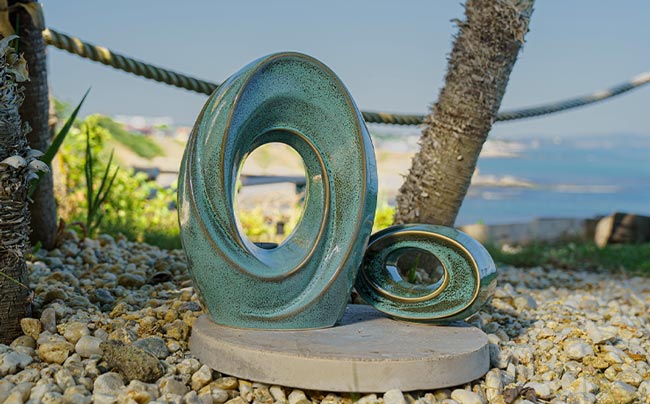
Who Has The Rights To Ashes After Cremation?
Unfortunately, sometimes there can be disputes over having possession over the ashes of a loved one. A quarter of deaths in the UK often lead to family disputes, with a fifth of these concerned the final resting place of the cremated ashes or coffin.
There may be disagreements over arrangements that someone in the family might not agree with. For example, the person who has full possession of the ashes might want to scatter their loved one’s ashes, whereas another family member without possession may want to have a small amount of their loved one’s ashes to place in a keepsake urn for ashes or memorial jewellery for ashes.
Courts will not split the ashes if even one of the parties objects to this. In the case of Fessi v Whitmore, the judge refused to split the ashes between the parents of a lost child as the father objected to this. It is important to know that there are no rights of ownership, but of possession.
There are rights to ashes post the release of them from the crematorium and to those who have the authority to collect them. A crematorium must hand over the ashes to the one who delivered the body for cremation. Despite this legality, it does not mean that the collector necessarily has the right to hold onto the ashes and do with them what they please. Alternatively, the highest ranking next-of-kin such as a spouse or child would hold the right. However, this does not include a co-habituating partner or step-children.
The person who has possession of the cremated remains then gets to decide what to do with the ashes. They can choose whether they would like to bury the remains, scatter the ashes or possibly keep them in their home. Although, if they wanted to bury the ashes, they would have to check with the plot owner in which they would like to bury them. We have a detailed article surrounding these legalities in our blog Scattering Ashes - The Laws, Regulations, and Permits.
It is interesting to know that up until the end of the 20th century, the purpose of a will was concerned with the consequences of owned property but the person's body was never categorised under this term. Under Article 8 of the Human Rights Act 1998, this particular subject became more intensely under fire as it was concerned with the respect to family life.
In today's world it is recommended, where possible, to have a will drawn up. Your loved one will write down their wishes and arrangements regarding their passing, therefore it is all planned out already who will be in possession of the cremated remains and what the plans will be regarding the family as a whole and benefit everyone’s wants and needs.
If a death is sudden or unexpected and there is no will drawn up with no immediate family members to take possession, it is the person who has the priority on intestacy under rule 22 of the Non-Contentious Probate Rules. If no family members or personal representatives come forward for this role, the cremation ashes or body are handed over to the local authorities.
It is still a fluid subject with blurred lines and contrary beliefs as there is no legal definition of ashes and whether they should be capable of being owned, or have the status of property. There is no ownership of human bodies when they are alive, so why should this be changed in death?




Leave a comment
This site is protected by hCaptcha and the hCaptcha Privacy Policy and Terms of Service apply.